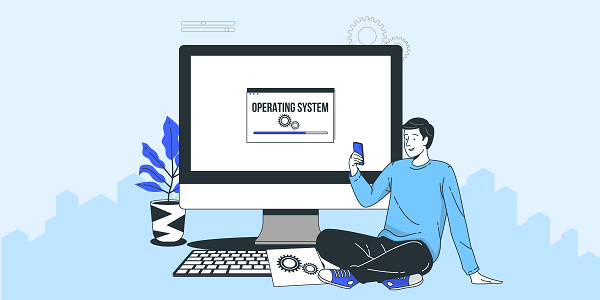Residential Proxies
Allowlisted 200M+ IPs from real ISP. Managed/obtained proxies via dashboard.

Proxies
Residential Proxies
Allowlisted 200M+ IPs from real ISP. Managed/obtained proxies via dashboard.
Residential (Socks5) Proxies
Over 200 million real IPs in 190+ locations,
Unlimited Residential Proxies
Use stable, fast, and furious 700K+ datacenter IPs worldwide.
Static Residential proxies
Long-lasting dedicated proxy, non-rotating residential proxy
Dedicated Datacenter Proxies
Use stable, fast, and furious 700K+ datacenter IPs worldwide.

Web Unblocker
View content as a real user with the help of ABC proxy's dynamic fingerprinting technology.
Proxies
API
Proxy list is generated through an API link and applied to compatible programs after whitelist IP authorization
User+Pass Auth
Create credential freely and use rotating proxies on any device or software without allowlisting IP
Proxy Manager
Manage all proxies using APM interface

Proxies
Residential Proxies
Allowlisted 200M+ IPs from real ISP. Managed/obtained proxies via dashboard.
Starts from
$0.77/ GB
Residential (Socks5) Proxies
Over 200 million real IPs in 190+ locations,
Starts from
$0.045/ IP
Unlimited Residential Proxies
Use stable, fast, and furious 700K+ datacenter IPs worldwide.
Starts from
$79/ Day
Rotating ISP Proxies
ABCProxy's Rotating ISP Proxies guarantee long session time.
Starts from
$0.77/ GB
Static Residential proxies
Long-lasting dedicated proxy, non-rotating residential proxy
Starts from
$5/MONTH
Dedicated Datacenter Proxies
Use stable, fast, and furious 700K+ datacenter IPs worldwide.
Starts from
$4.5/MONTH
Knowledge Base
English
繁體中文
Русский
Indonesia
Português
Español
بالعربية

In the realm of online security and moderation, the term "IP banned" is one that frequently arises. But what does it really mean? In simple terms, when an IP address is banned, it is prevented from accessing a particular website or online service. This action is usually taken as a response to inappropriate behavior, such as spamming, hacking, or other violations of the site's terms of service.
Before delving deeper into the concept of IP banning, it's important to understand what an IP address is. An IP address is a unique string of numbers separated by periods that identifies a device using the Internet Protocol to communicate over a network. Every device connected to the internet, including computers, smartphones, and servers, has an IP address.
Websites and online services implement IP bans for a variety of reasons. One common reason is to prevent malicious activities such as hacking attempts, DDoS attacks, or spamming. By blocking the IP address associated with such activities, site administrators can protect their platforms and users from harm.
It's important to distinguish between IP bans and account bans. While an IP ban blocks a specific IP address from accessing a site, an account ban typically involves banning a user's account based on their actions. In some cases, both IP and account bans may be implemented simultaneously to enforce strict penalties.
Despite the effectiveness of IP bans in deterring unwanted behavior, determined individuals may attempt to circumvent them using various methods. For example, they may try using a proxy server or changing their IP address to evade detection. However, website administrators are constantly developing new techniques to combat such evasion tactics and maintain a secure online environment.
When an IP address is banned, it not only affects the individual user associated with that IP but may also impact other users who share the same IP address. This is particularly relevant in cases where multiple users connect to the internet through a shared network, such as in offices, schools, or public spaces. In such instances, innocent users may inadvertently face restrictions due to the actions of a single offending user.
In conclusion, understanding what an IP ban entails is crucial in the context of online security and moderation. By implementing IP bans, website administrators can effectively deter malicious behavior and safeguard their platforms. However, it is essential to strike a balance between security measures and user accessibility to ensure a positive online experience for all.
Featured Posts
Popular Products
Residential Proxies
Allowlisted 200M+ IPs from real ISP. Managed/obtained proxies via dashboard.
Residential (Socks5) Proxies
Over 200 million real IPs in 190+ locations,
Unlimited Residential Proxies
Use stable, fast, and furious 700K+ datacenter IPs worldwide.
Rotating ISP Proxies
ABCProxy's Rotating ISP Proxies guarantee long session time.
Residential (Socks5) Proxies
Long-lasting dedicated proxy, non-rotating residential proxy
Dedicated Datacenter Proxies
Use stable, fast, and furious 700K+ datacenter IPs worldwide.
Web Unblocker
View content as a real user with the help of ABC proxy's dynamic fingerprinting technology.
Related articles

What is Luminate Data Registration? How does proxy IP improve data registration efficiency
This article explains the technical definition and application scenarios of Luminate Data Registration, analyzes the core value of proxy IP in data registration, and explains how abcproxy optimizes the data registration process through multiple types of proxy IP products.